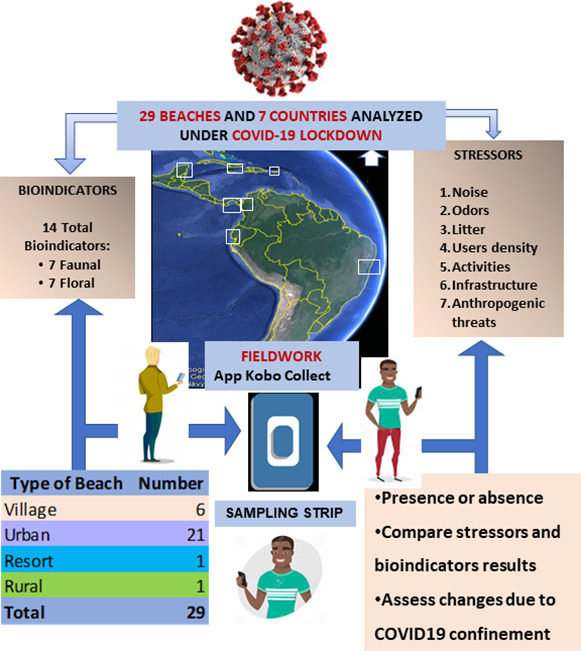- Record: found
- Abstract: found
- Article: not found
How does the beach ecosystem change without tourists during COVID-19 lockdown?

Abstract
Urban tourist beach ecosystems provide the essential service of recreation. These ecosystems also support critical ecological functions where biodiversity conservation is not usually a priority. The sudden lockdown due to the COVID-19 pandemic created a unique opportunity to evaluate the effects of human absence in these urban-coastal ecosystems. This study examined bioindicators from 29 urban tourist beaches in seven Latin-American countries and assesses their response to lockdown about some relevant anthropogenic stressors such as pollution, noise, human activities, and user density. The presence of animals and plants, as well as the intensity of stressors, were assessed through a standardized protocol during lockdown conditions. Additionally, the environmental conditions of the beaches before and during lockdown were qualitatively compared using multivariate non-parametric statistics. We found notable positive changes in biological components and a clear decrease in human stressors on almost all the beaches. Dune vegetation increased on most sites. Similarly, high burrow densities of ghost crabs were observed on beaches, except those where cleaning activity persisted. Because of the lockdown, there was an exceptionally low frequency of beach users, which in turn reduced litter, noise and unnatural odors. The observed patterns suggest that tourist beaches can be restored to natural settings relatively quickly. We propose several indicators to measure changes in beaches once lockdown is relaxed. Adequate conservation strategies will render the recreational service of tourist beaches more environmental-friendly.
Graphical abstract
Related collections
Most cited references97
- Record: found
- Abstract: found
- Article: found
Welcome to the Tidyverse
- Record: found
- Abstract: not found
- Article: not found
Non-parametric multivariate analyses of changes in community structure
- Record: found
- Abstract: found
- Article: not found

